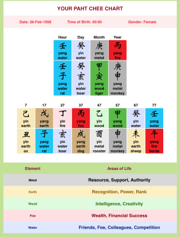Aussie state to criminalise explicit deep fake videos with new laws
By
Danielle F.
- Replies 3
As technology advances at an unprecedented pace, the line between reality and digital fabrication also becomes increasingly blurred.
This allowed the rise of a new form of digital deception known as 'deep fakes', where artificial intelligence (AI) could create realistic images and videos of people saying or doing things they never did.
The implications of this technology are concerning, particularly when it comes to the creation and distribution of sexually explicit content.
Recognising the potential harm and violation of personal rights, South Australia took a bold step forward.
The state introduced groundbreaking legislation that could tackle sexually explicit deep fakes.
The new laws should criminalise the creation, distribution, and hosting of such content.
It could also come with severe penalties, reflecting the severity of the offence.
Under the proposed bill, individuals guilty of generating deep fake content could face up to four years in prison and $20,000 in fines.
This is not limited to those creating deep fake images and videos but could also extend to those spreading or distributing fake content.
The urgency of this legislation was highlighted after a high school teacher, Hannah Grundy, became a victim of deep fake technology.
Explicit images of her face edited on another woman's body circulated online.
'When I first saw the content, it was catastrophic. It was nightmarish,' she recounted.
Stories like Hannah's underscored the need for legal protection against the invasive act.
Attorney-General Kyam Maher also voiced his concerns about deep fake technology.
'As technology changes and as AI-generated content becomes indistinguishable from the real content, it is posing great danger,' Attorney Maher stated.
The proposed legislation was a response to the evolving technological threats and should keep individuals safe from the malicious use of AI.
However, with new laws came the challenge of enforcement.
The effectiveness of these new measures would depend on the state's ability to police the digital landscape.
Concerned citizens also raised concerns about whether South Australia has the necessary resources to implement the law effectively and deter would-be offenders.
The introduction of these laws could set a precedent for other states and territories to follow.
It could also lead to a nationwide crackdown on deep fake content, and a positive step towards a safer digital environment for Australians.

Have you or someone you know been affected by deep fake technology? What necessary measures should authorities use to combat this growing problem? Share your insights and opinions with us in the comments section below.
This allowed the rise of a new form of digital deception known as 'deep fakes', where artificial intelligence (AI) could create realistic images and videos of people saying or doing things they never did.
The implications of this technology are concerning, particularly when it comes to the creation and distribution of sexually explicit content.
Recognising the potential harm and violation of personal rights, South Australia took a bold step forward.
The state introduced groundbreaking legislation that could tackle sexually explicit deep fakes.
The new laws should criminalise the creation, distribution, and hosting of such content.
It could also come with severe penalties, reflecting the severity of the offence.
Under the proposed bill, individuals guilty of generating deep fake content could face up to four years in prison and $20,000 in fines.
This is not limited to those creating deep fake images and videos but could also extend to those spreading or distributing fake content.
The urgency of this legislation was highlighted after a high school teacher, Hannah Grundy, became a victim of deep fake technology.
Explicit images of her face edited on another woman's body circulated online.
'When I first saw the content, it was catastrophic. It was nightmarish,' she recounted.
Stories like Hannah's underscored the need for legal protection against the invasive act.
Attorney-General Kyam Maher also voiced his concerns about deep fake technology.
'As technology changes and as AI-generated content becomes indistinguishable from the real content, it is posing great danger,' Attorney Maher stated.
The proposed legislation was a response to the evolving technological threats and should keep individuals safe from the malicious use of AI.
However, with new laws came the challenge of enforcement.
The effectiveness of these new measures would depend on the state's ability to police the digital landscape.
Concerned citizens also raised concerns about whether South Australia has the necessary resources to implement the law effectively and deter would-be offenders.
The introduction of these laws could set a precedent for other states and territories to follow.
It could also lead to a nationwide crackdown on deep fake content, and a positive step towards a safer digital environment for Australians.
Key Takeaways
- South Australia introduced a new legislation aimed at criminalising the creation and distribution of sexually explicit deep fake content.
- Under the proposed bill, offenders could face up to four years in prison and fines of up to $20,000.
- The move came after a high school teacher, Hannah Grundy, became a victim of deepfake technology.
- The legislation should target offenders who host, distribute, or provide platforms for deep fake content.








